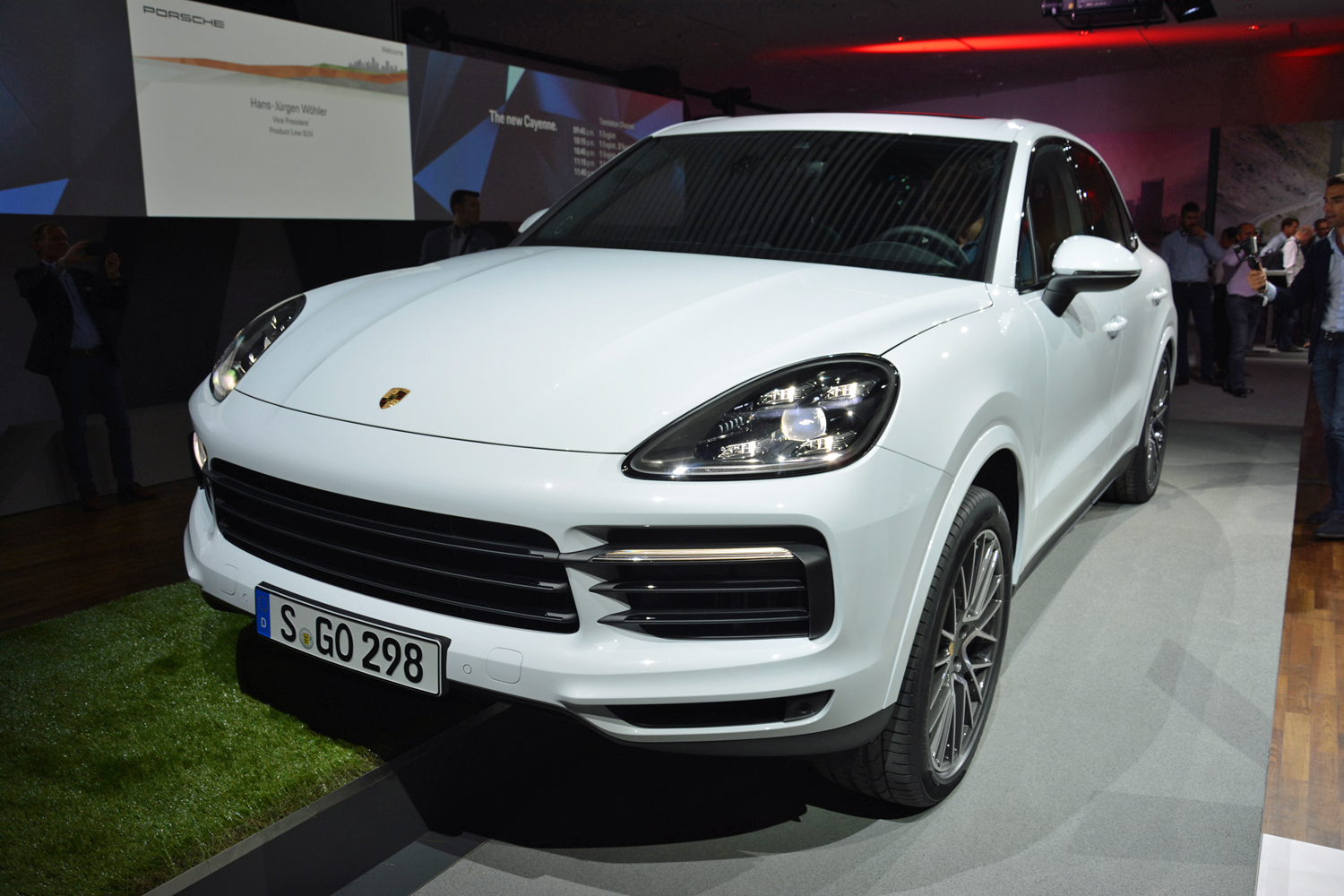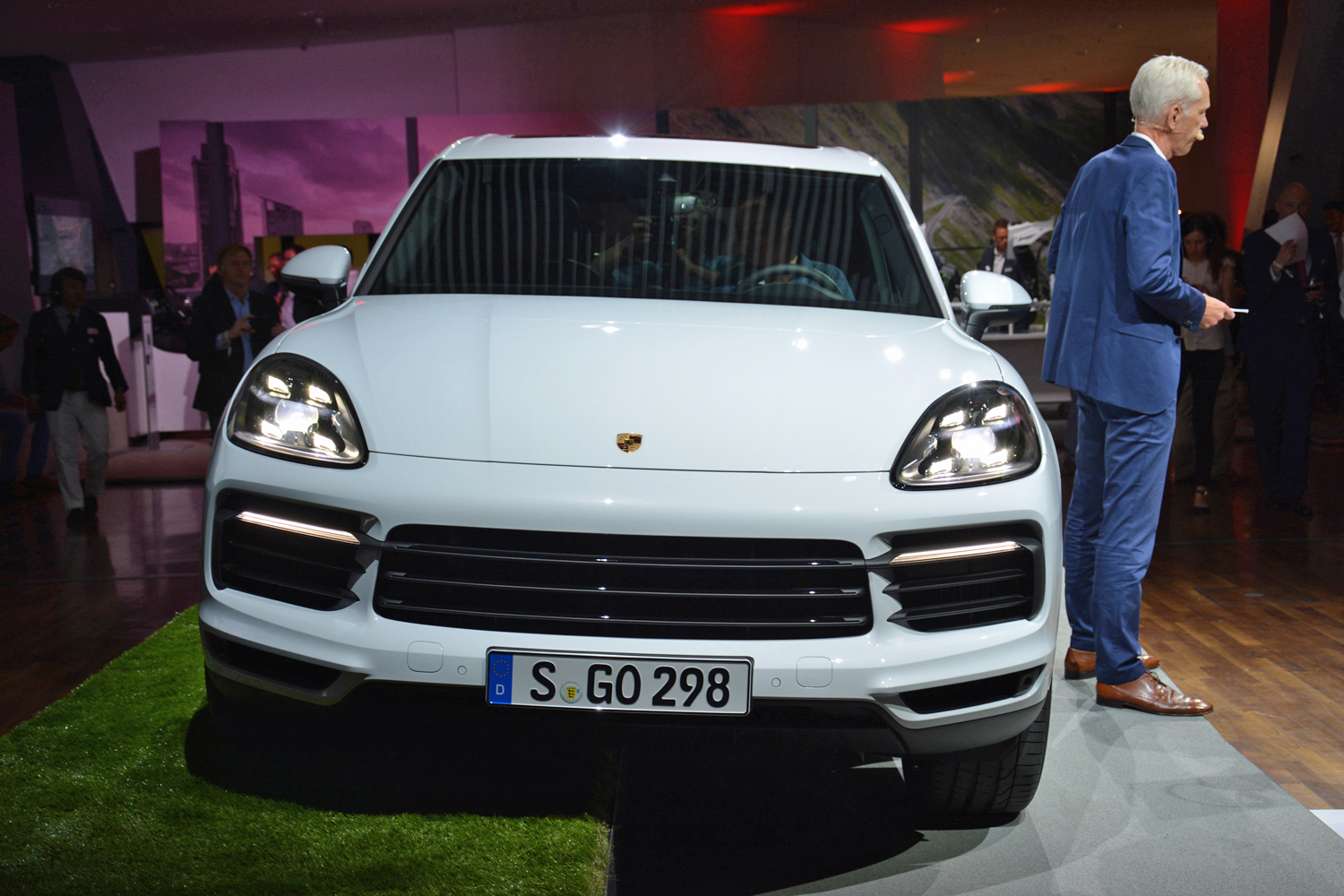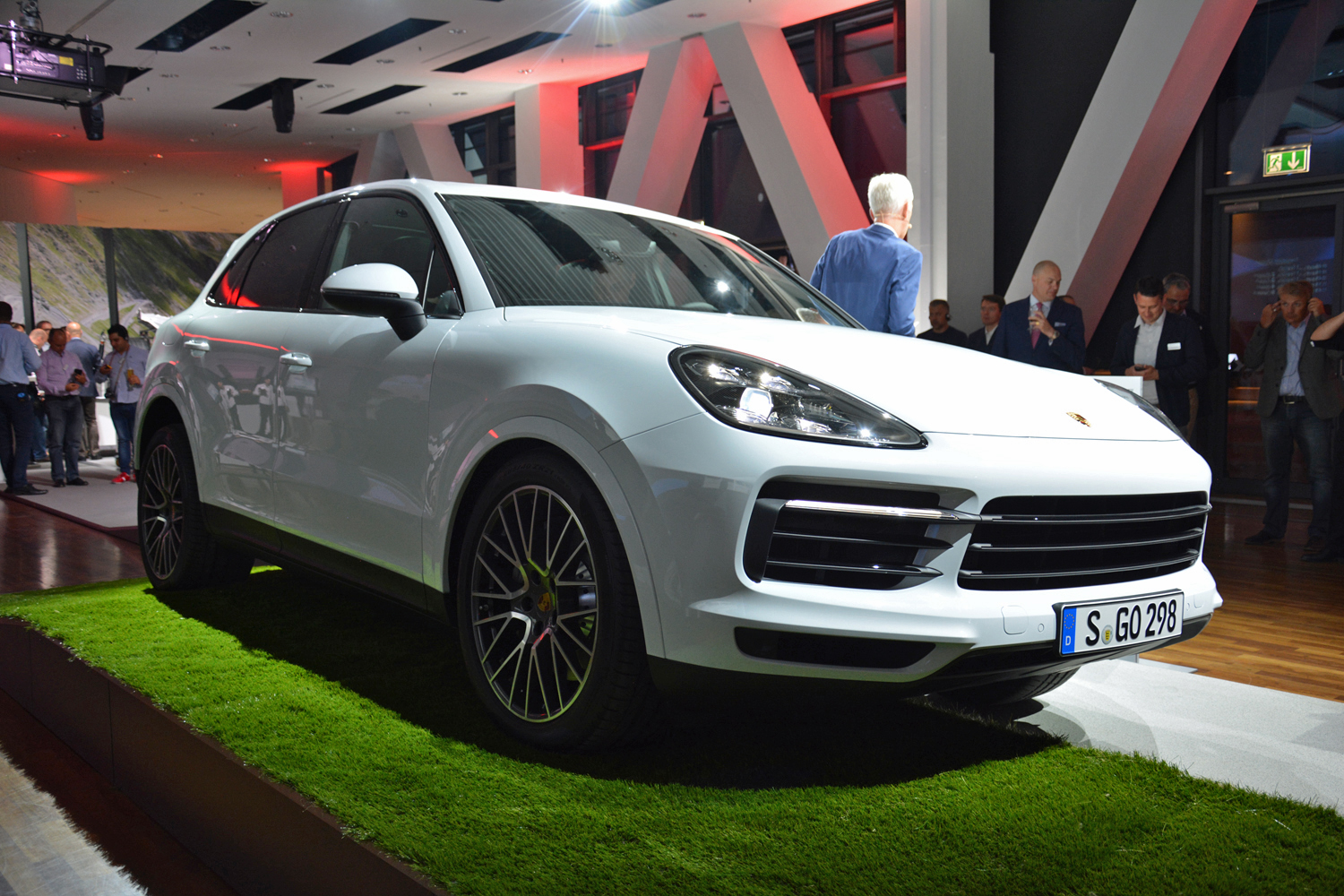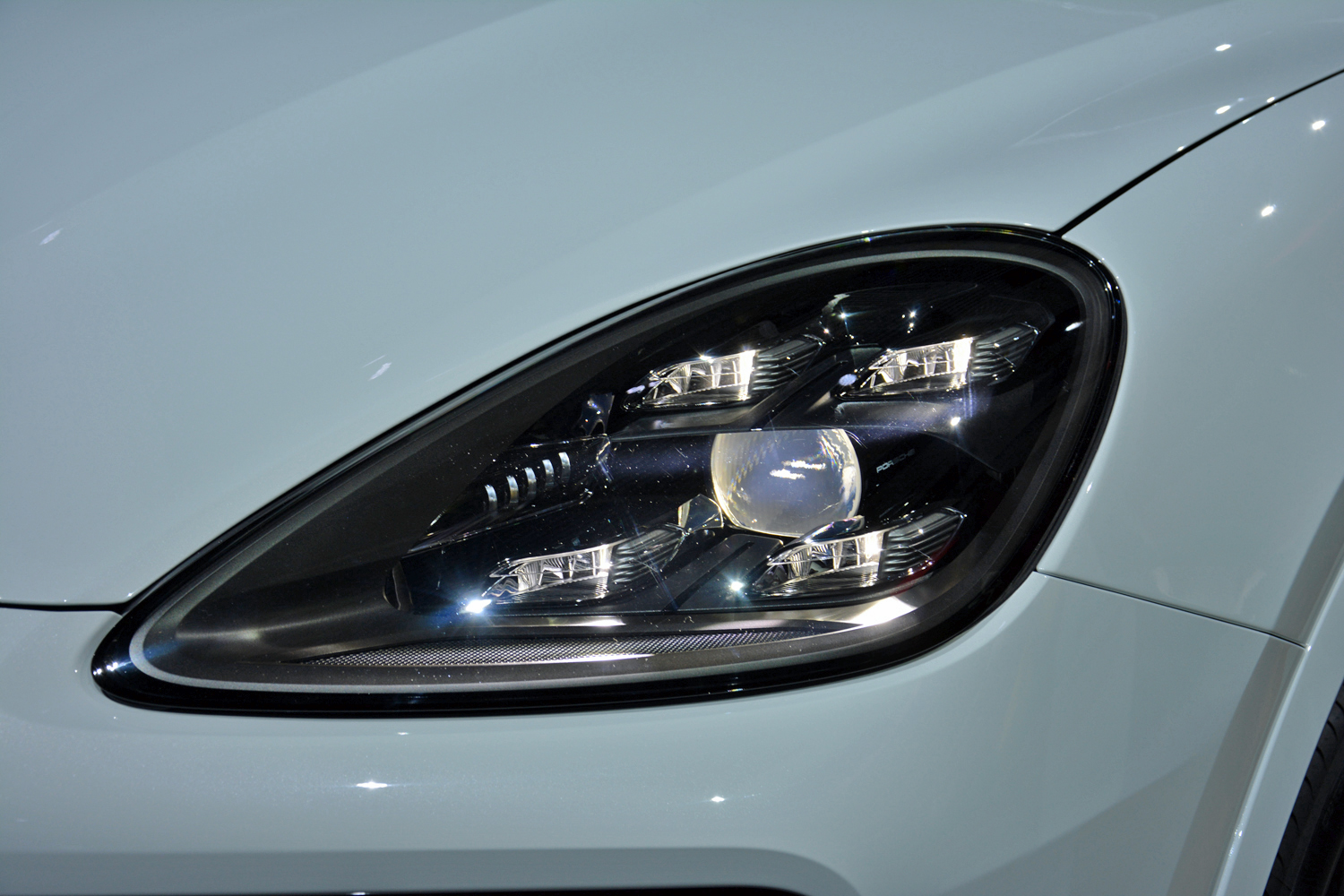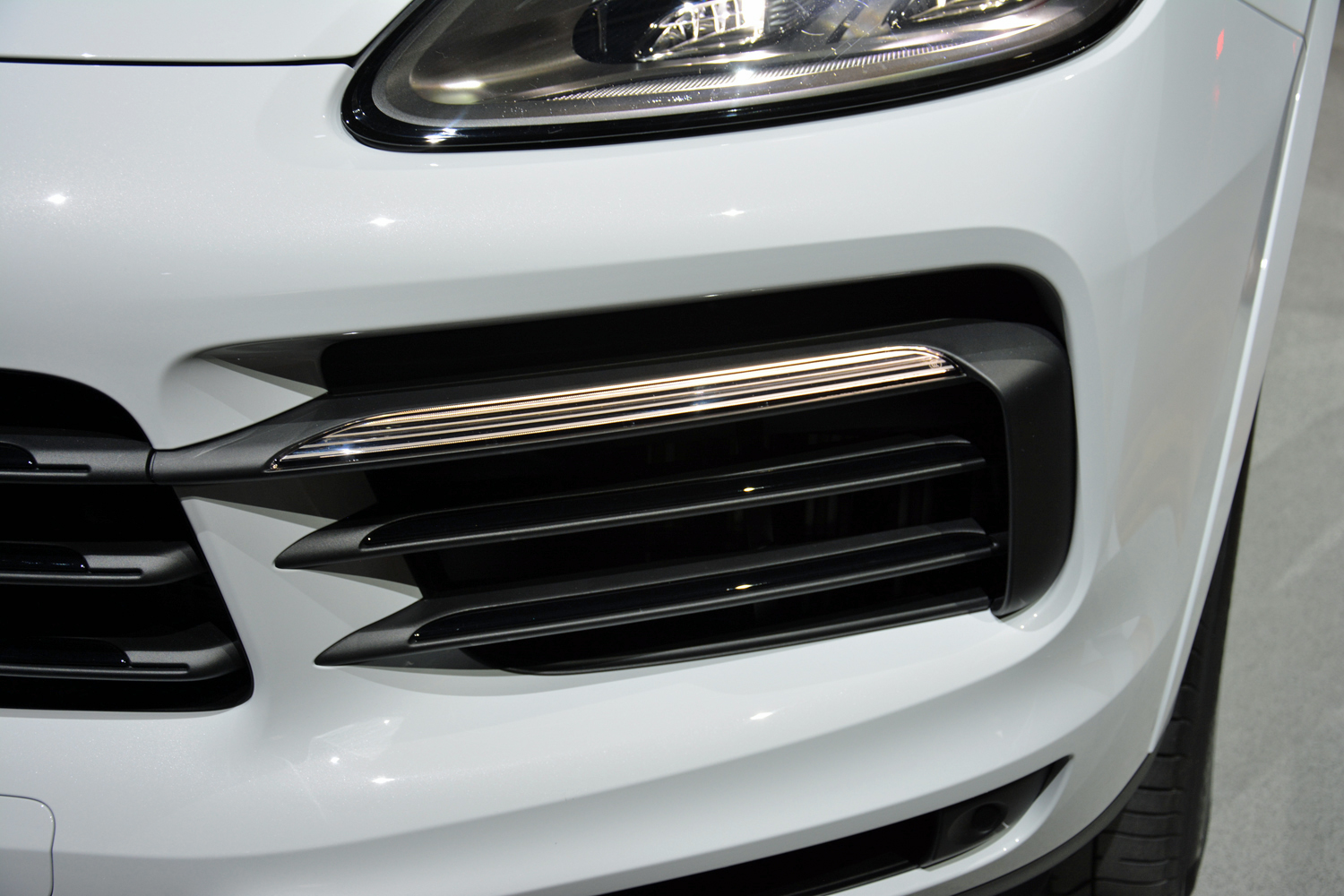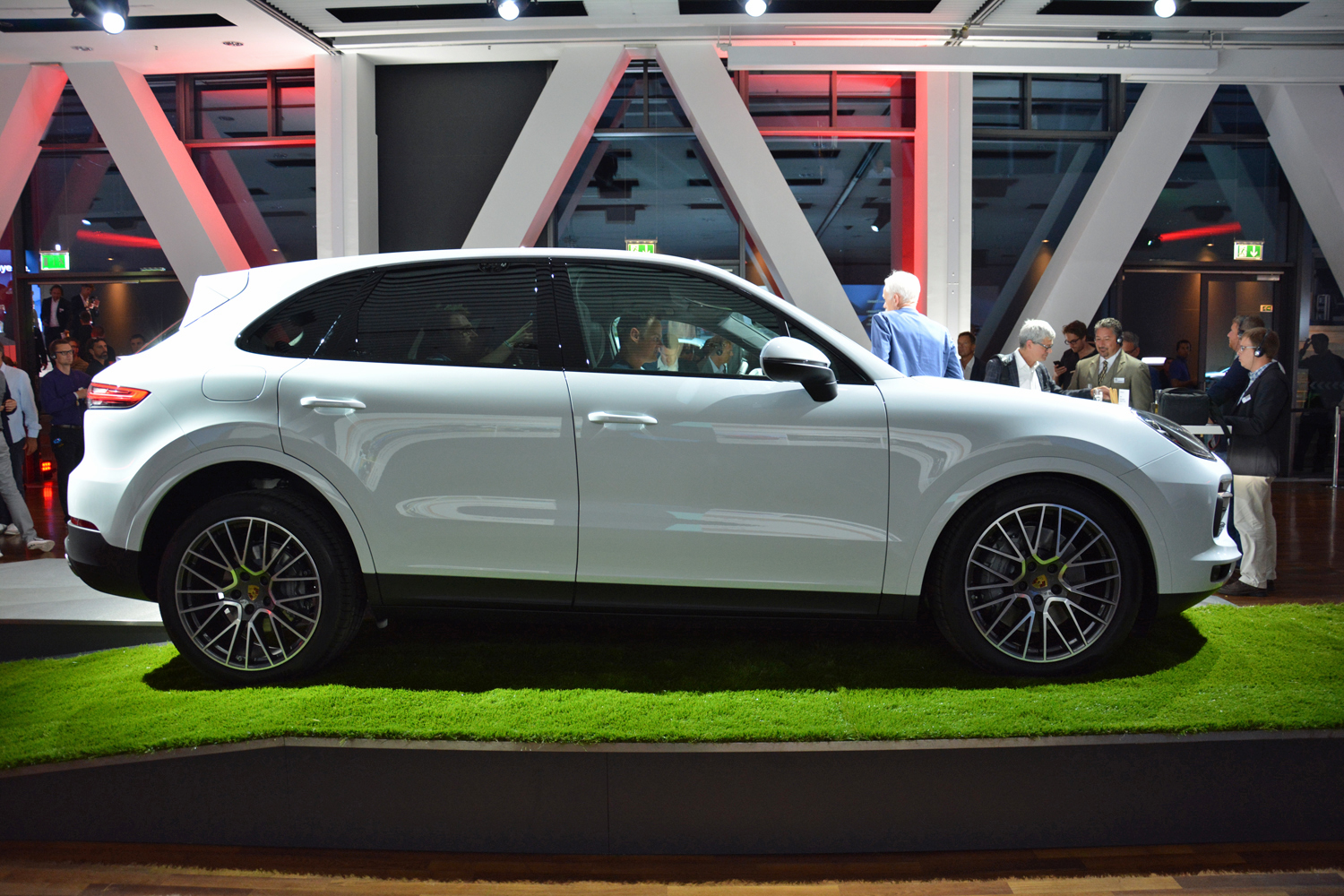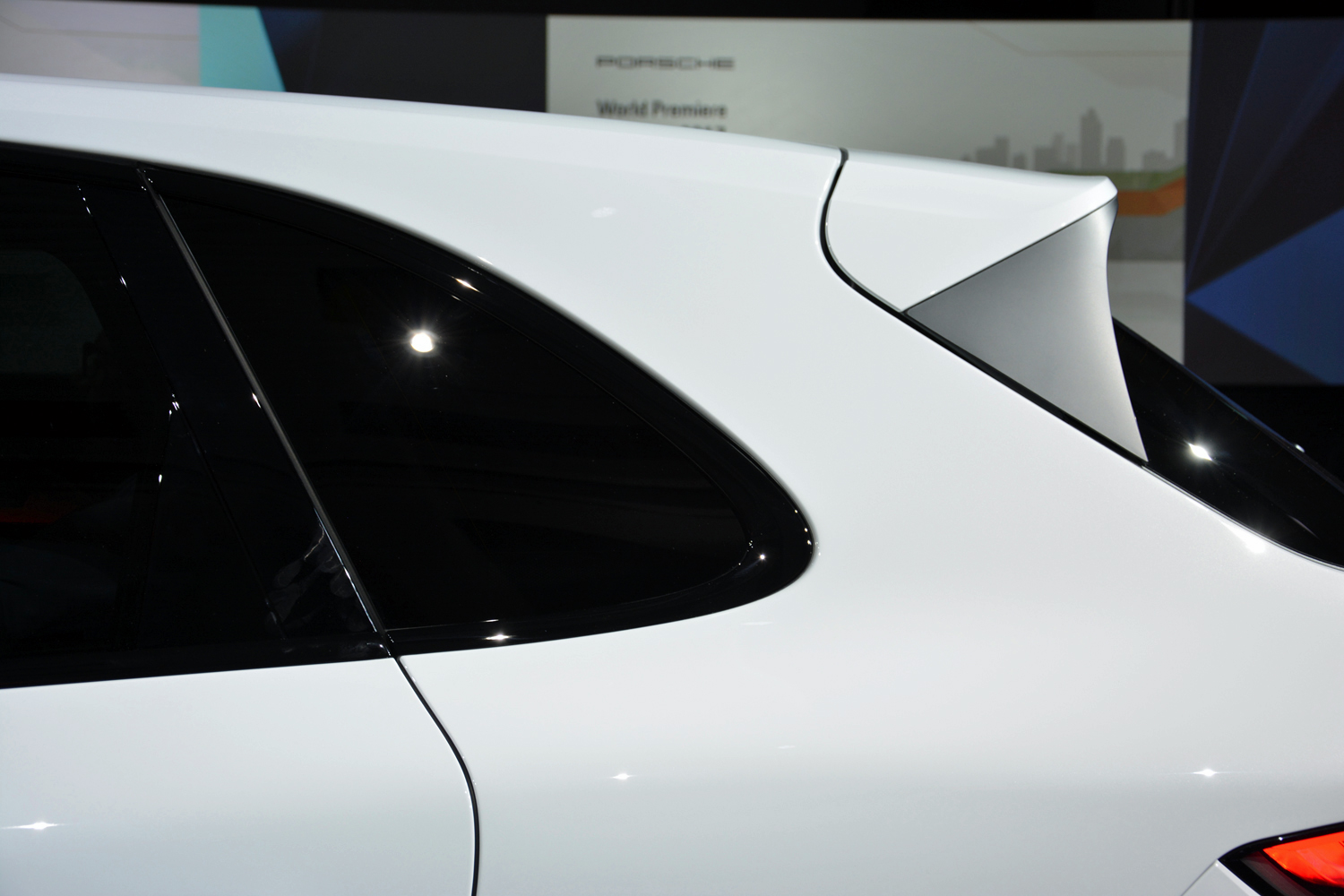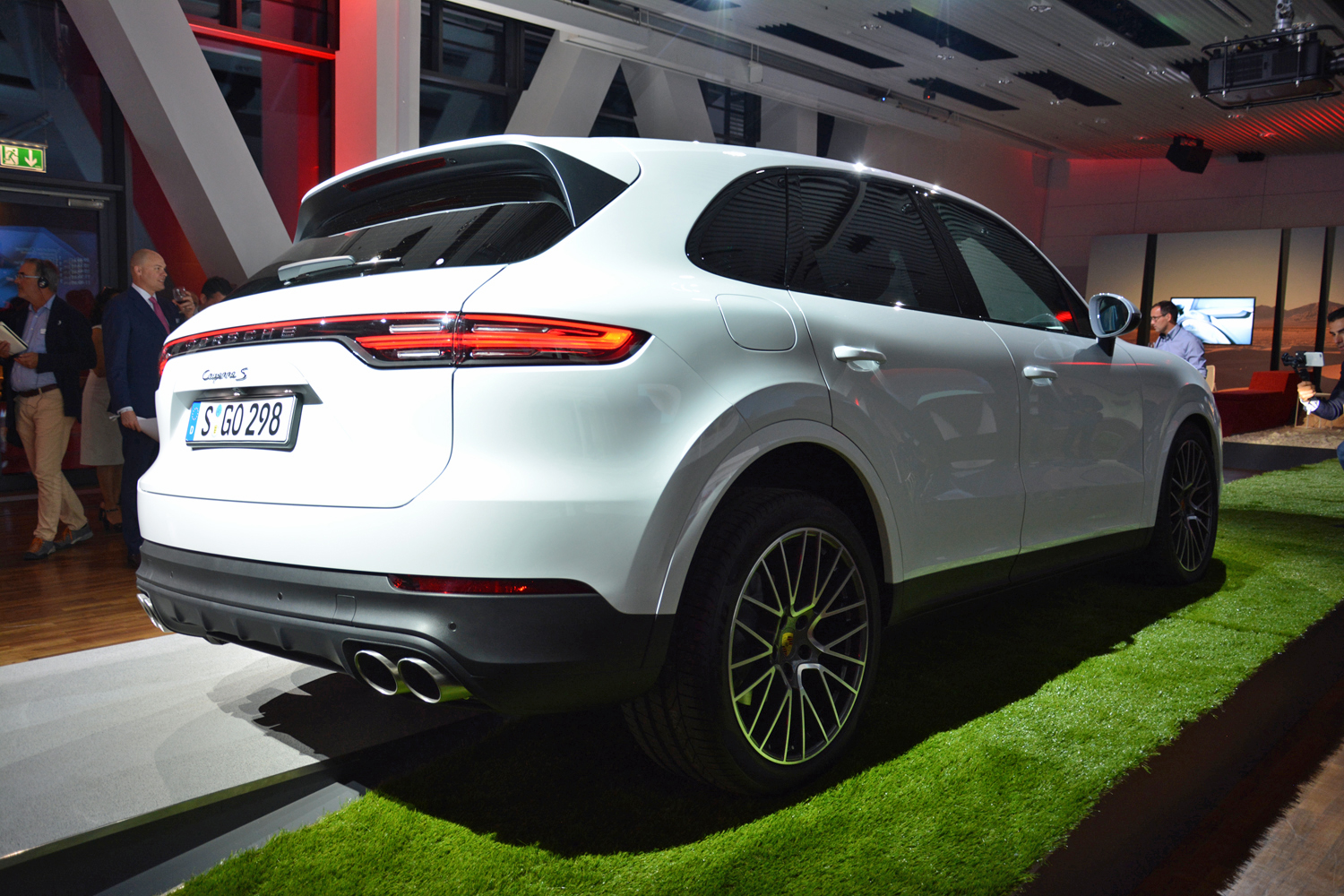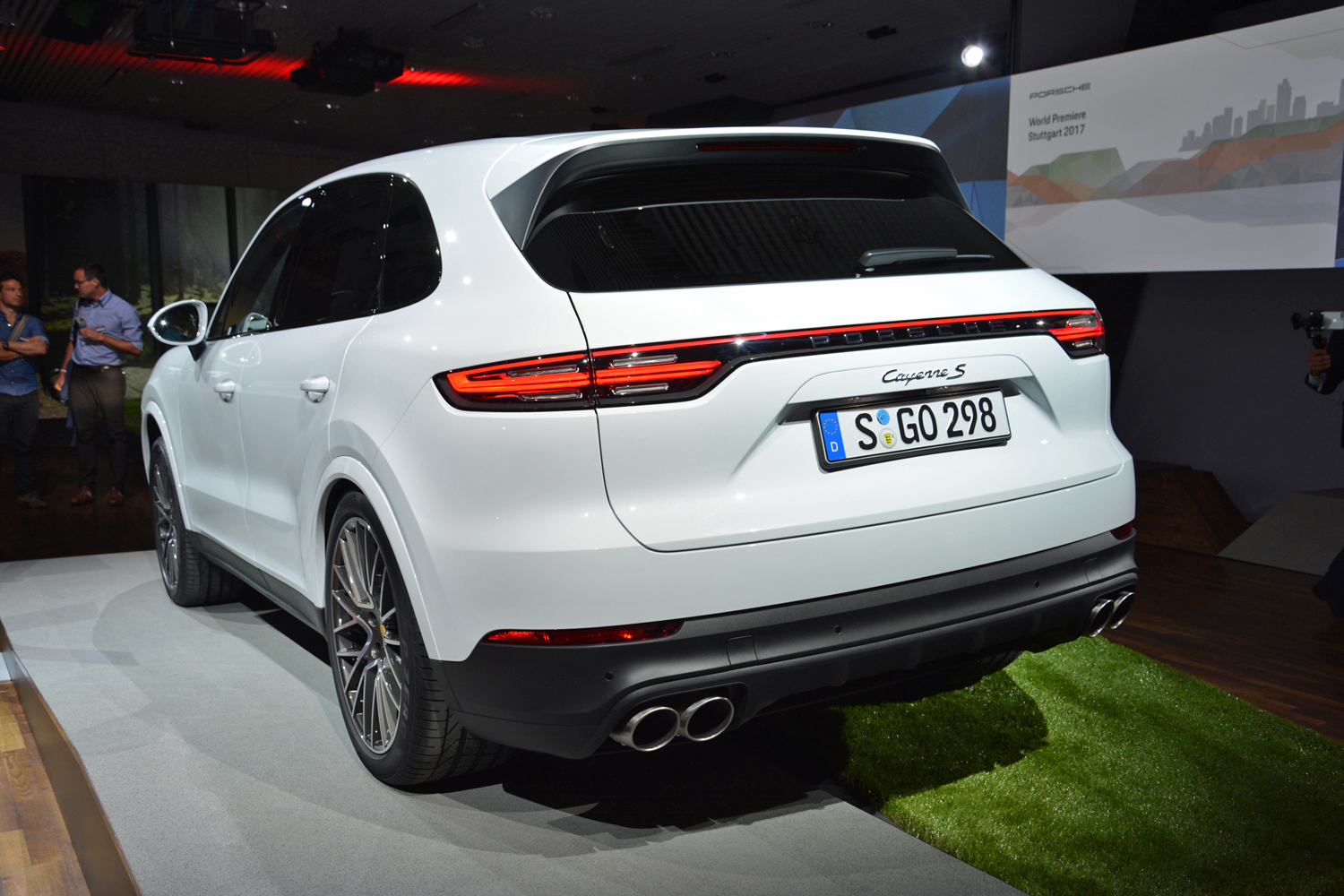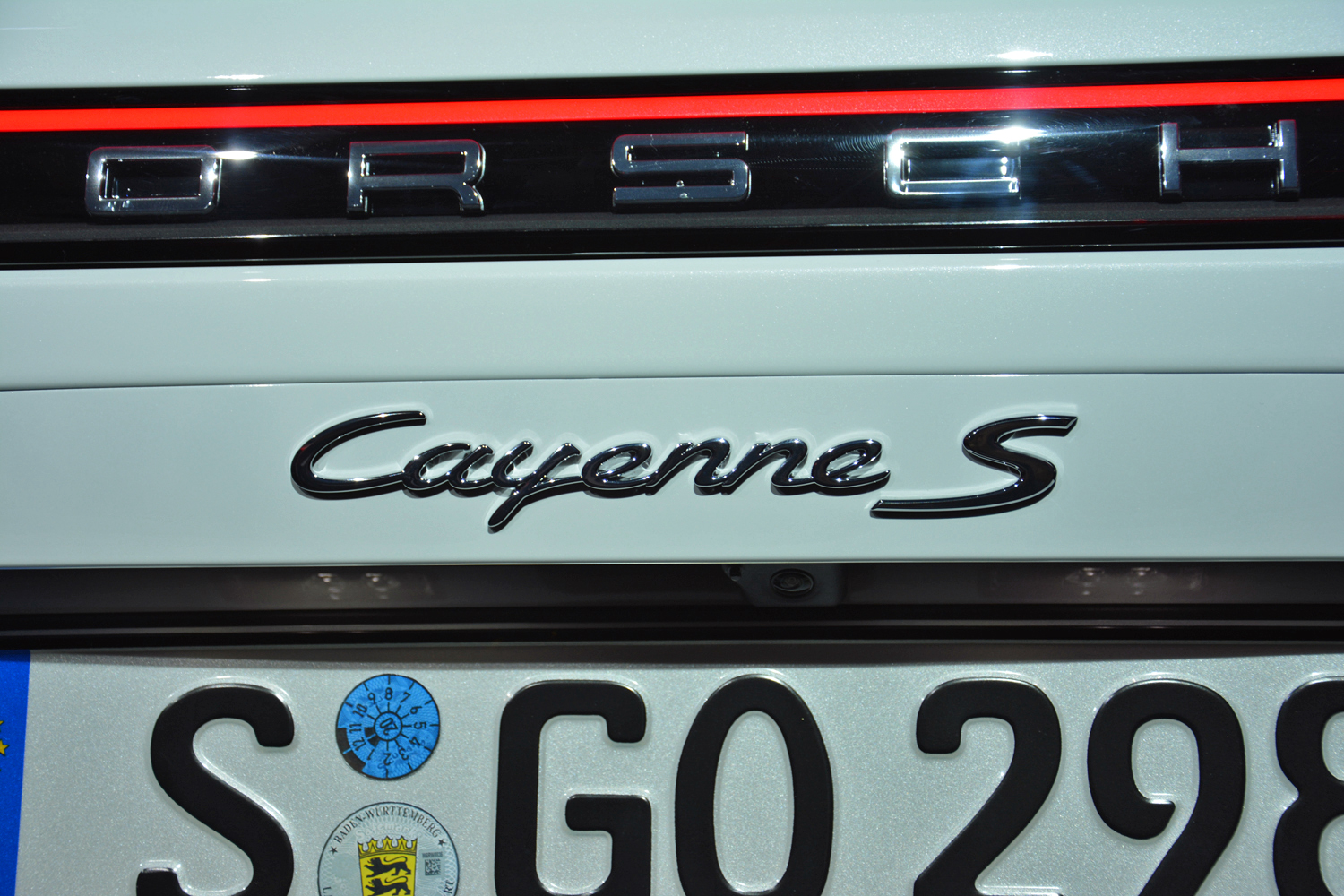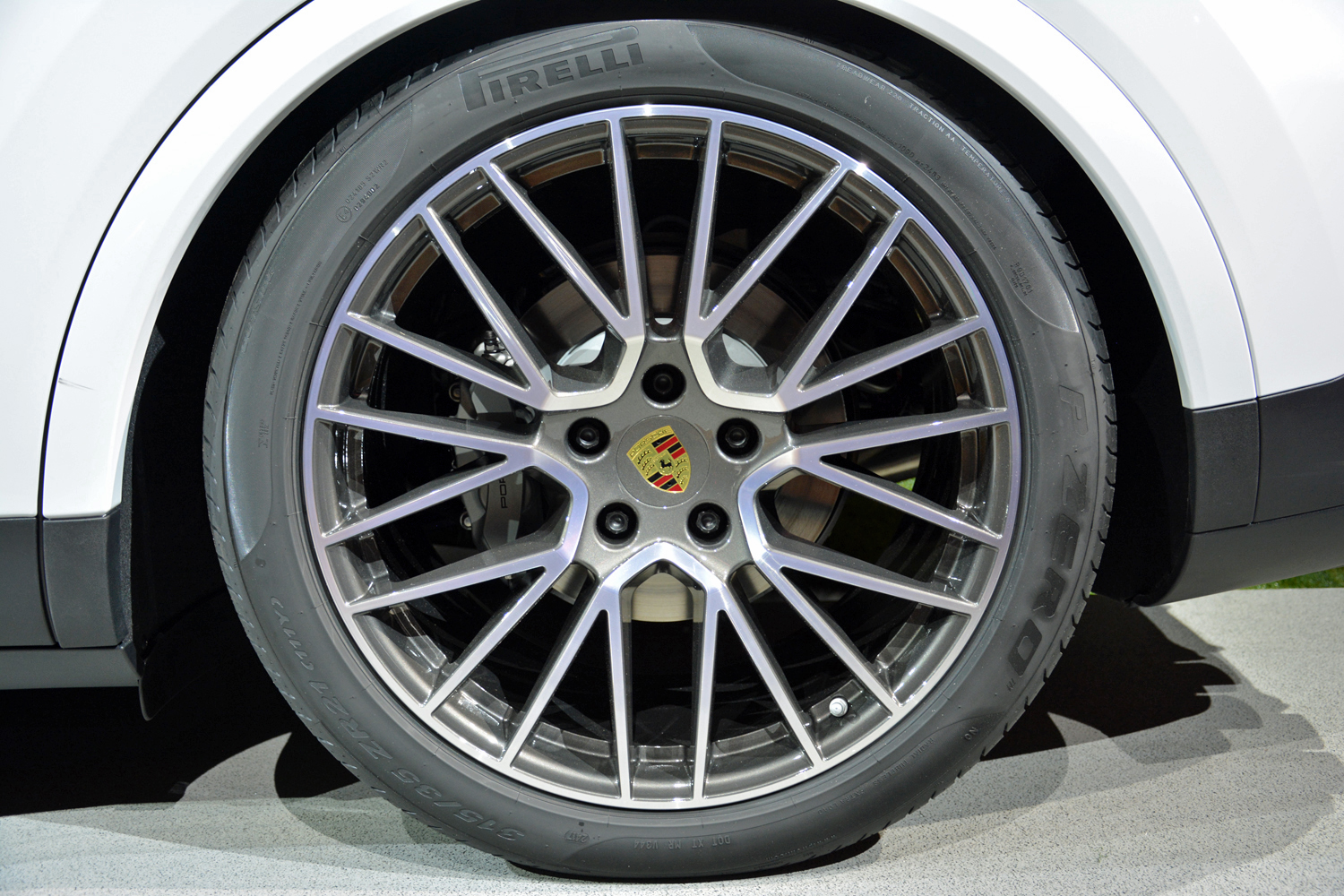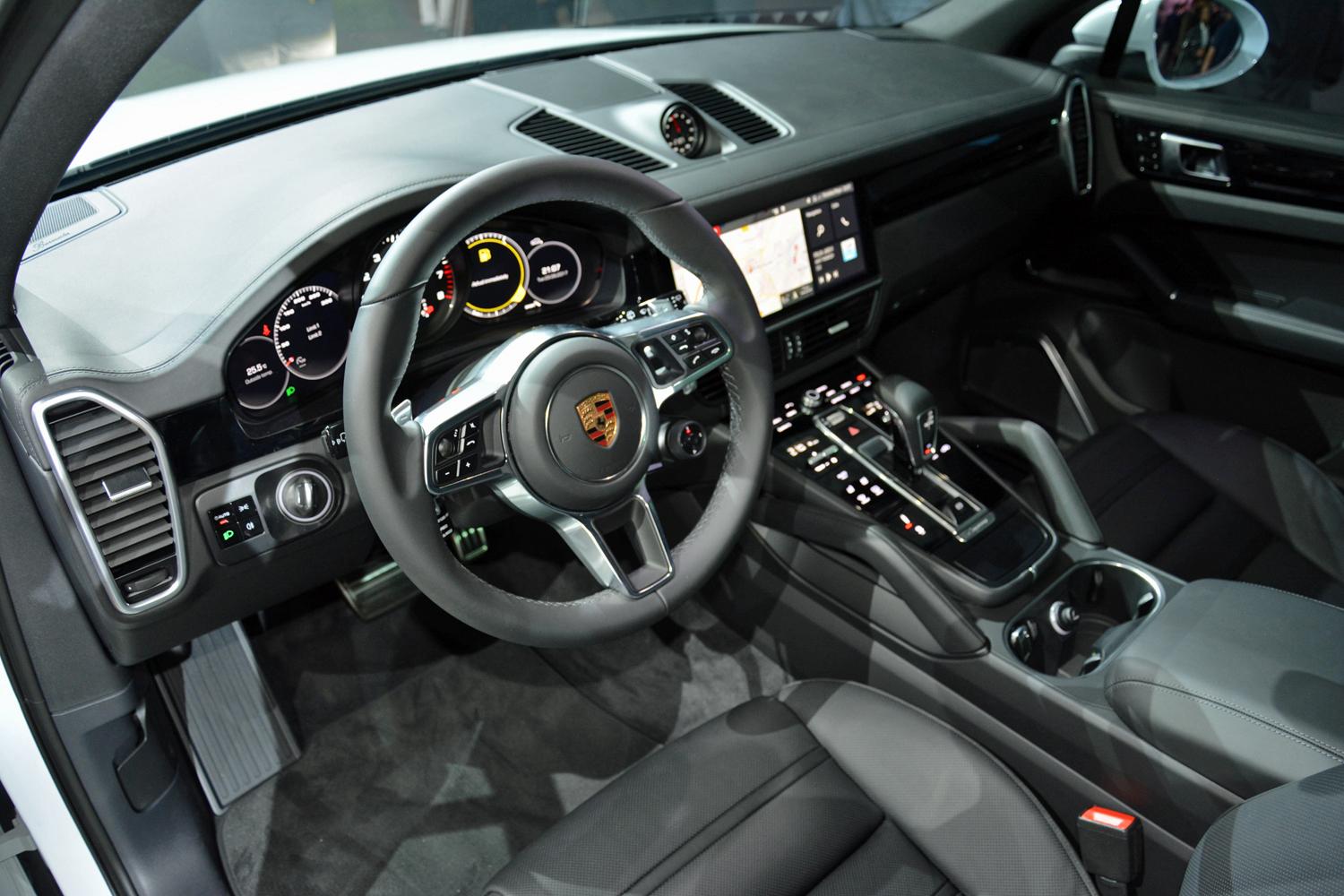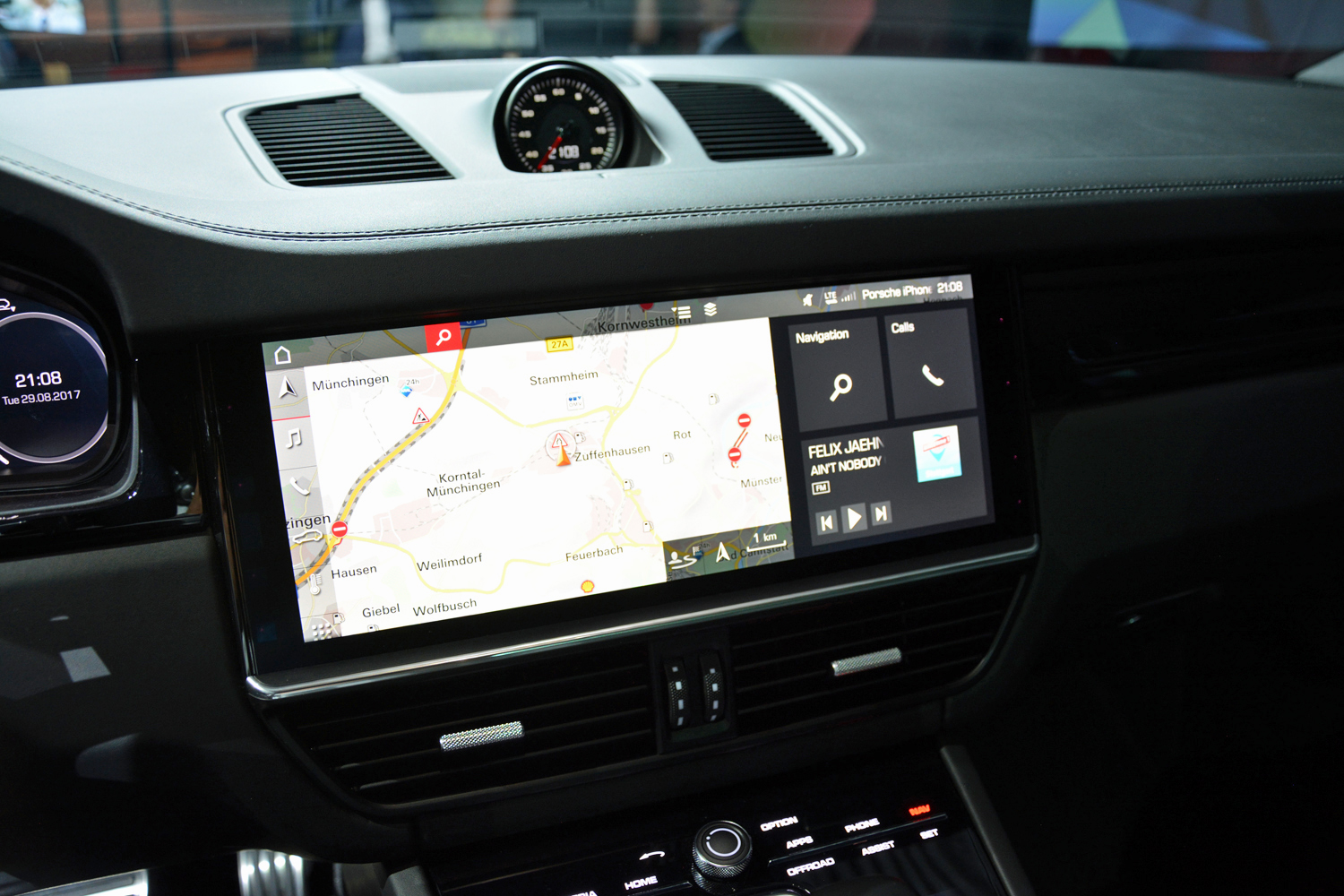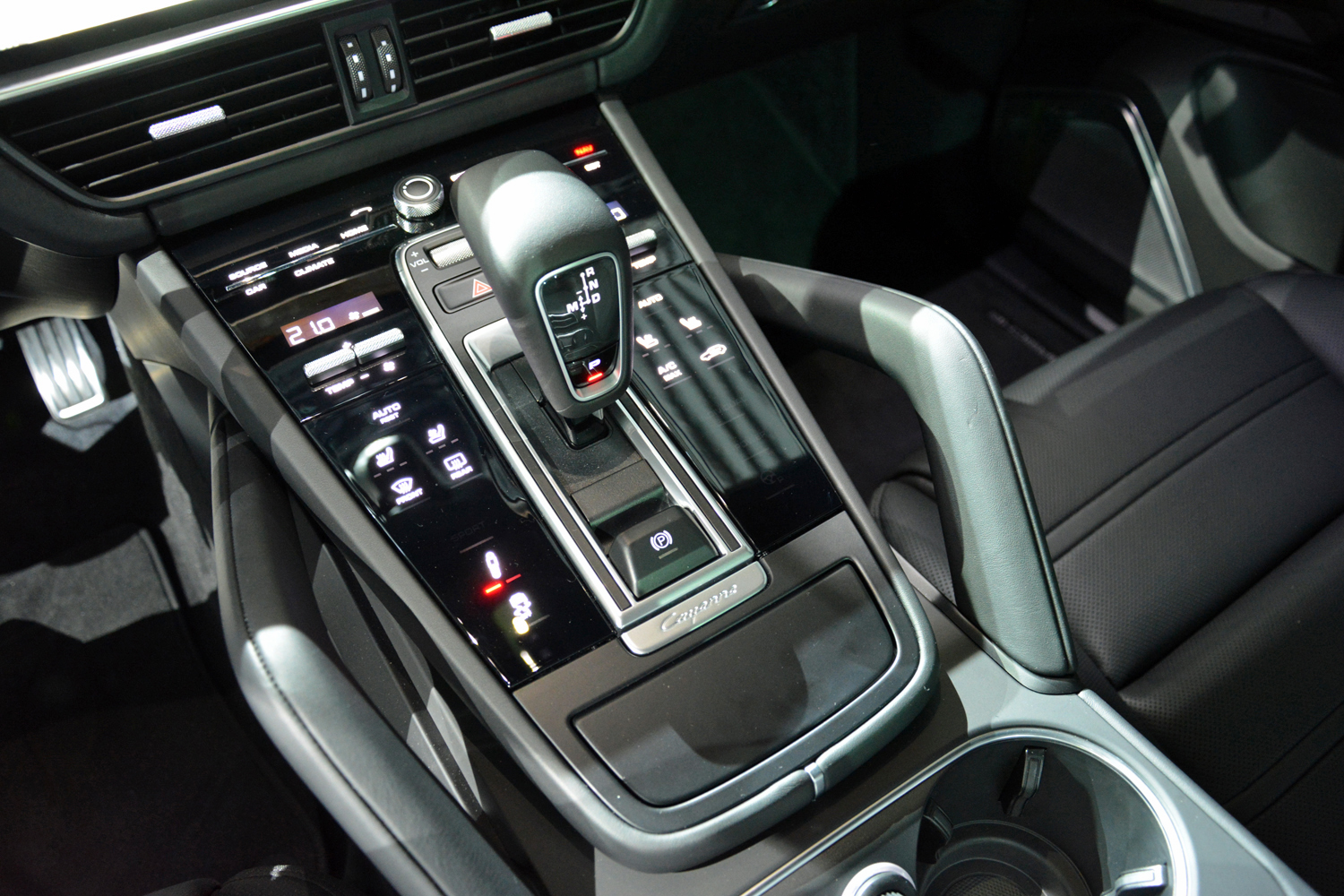The 2019 Porsche Cayenne has landed. The third generation of the original high-performance SUV survived several rounds of torturous tests all around the globe and it’s finally ready to hit the streets camo-free. Porsche promises its biggest off-roader is more comfortable than before yet sportier than ever.
What’s new?
Few car companies can pull off an evolutionary design as well as Porsche can — in this respect, the German manufacturer is the Apple of the automotive industry. The next-generation Cayenne still looks like a Cayenne, and it shares basic dimensions and overall proportions with its predecessor.
Look closely and you will notice it receives subtle visual tweaks that bring it in line with recent additions to the company’s lineup like the second-generation Panamera. The changes include a sharper-looking front end that is a little bit lower than before, bigger air intakes chiseled into the front bumper, and thin LED tail lamps connected by a light bar. The updates give Porsche’s third-generation Cayenne a wider, more muscular stance.
The smartest Cayenne yet
Luxury and sportiness have always defined the Cayenne’s cabin, and the third-generation model does not break with tradition. It’s not an old-school luxury, though; this time around the interior is loaded with state-of-the-art tech features.
The dashboard is dominated by a 12.3-inch HD touch screen borrowed from the Panamera. It runs the latest version of Porsche’s Communication Management (PCM) infotainment system, and it consults real-time traffic information to provide up-to-the-minute navigation directions. Two configurable seven-inch color screens are integrated into the instrument cluster, and the slanted center console boasts a smartphone-like touch-sensitive surface which gives acoustic and haptic feedback when a button is pressed.
The long list of electronic driving aids includes night vision, lane change assist, lane keeping assist, traffic jam recognition, traffic jam assist, park assist, and a surround-view camera. It’s also offered with Porsche’s InnoDrive technology, which takes adaptive cruise control to the next level by processing information from the navigation system to slow the car down ahead of a sharp bend or accelerate as it begins to climb a steep hill.
What’s under the hood?
Porsche — like all automakers — is under pressure to build more efficient cars, but you didn’t think the Cayenne would settle for a turbo four, did you? The base model packs a turbocharged 3.0-liter V6 engine rated at 340 horsepower and 332 pound-feet of torque. It performs the benchmark zero-to-60-mph sprint in 5.9 seconds, though selecting the optional Sport Chrono package lowers that figure to 5.6 seconds.
Next up in the hierarchy is the Cayenne S, which receives a 2.9-liter V6 equipped with two turbochargers. Its output checks in at 440 horsepower and 406 pound-feet of torque, which is enough grunt for a zero-to-60 time of 4.6 seconds with the Sport Chrono package. To put that figure into perspective, the Cayenne S is almost as fast as a base-model 911 — not bad for a family hauler.
“Never before has the Cayenne borrowed so much from the 911,” Porsche CEO Oliver Blume promised during a presentation in Stuttgart, Germany. He added the Cayenne will benefit from the company’s plug-in hybrid technology, though he did not reveal when additional models will debut.
Both six-cylinders shift through a newly developed eight-speed automatic transmission. The lower gears are short to help the Cayenne deliver neck-snapping performance when the engine’s full wrath is called upon. The eighth gear is intentionally long to keep the engine’s revolutions low when cruising on the highway. Lower revolutions mean less cabin noise and better fuel economy.
All-wheel drive comes standard across the lineup and Porsche wants you to use it. The SUV has been comprehensively tested in the most grueling places on Earth. Pre-production prototypes have collectively logged 4.4 million miles in conditions Porsche admits the off-roader is highly unlikely to ever encounter. They have survived minus-49 degrees in Alaska, over 120 degrees in Death Valley, California, and everything in between. They have tackled off-road circuits in New Zealand, endless traffic jams in China’s hot and humid cities, and been fine-tuned with a painstaking attention to detail on a sinuous race track nestled deep in the German countryside. For a car, that is like surviving the 2005 movie Hostel.
The athletic kind
Part of the Cayenne’s appeal is that it can go straight from the trail to the track. It’s up to 143 pounds lighter than the outgoing second-generation model thanks in part to a new platform, and an intelligent mix of steel and aluminum in its construction. Engineers went as far as adding a lithium-ion battery, which sheds 22 pounds.
The diet allowed Porsche to bake in additional features — including an available rear-wheel steering system — without sacrificing performance or fuel economy.
Staggered wheels (a first in the nameplate’s history) and a brand-new suspension developed with an emphasis on dynamism ensure the Cayenne remains the athlete of the segment. It also receives stabilizer bars controlled by a 48-volt electrical system, a trick piece of hardware borrowed from the Bentley Bentayga. We recently spent a week behind the wheel of the big Bentley and came away impressed by the near-complete lack of body roll, so we expect it will work wonders in Porsche’s newest off-roader, which is more hardcore than its British cousin.
The Cayenne inaugurates Porsche’s Surface Coated Brake (PSCB) technology. It consists of cast-iron discs with a tungsten-carbide coating. The automaker explains the coating increases friction, which decreases the stopping distance, while reducing wear and brake dust. Carbon ceramic brakes are also available.
When can I buy one?
The 2019 Porsche Cayenne will arrive at dealers nationwide halfway through summer 2018. The base model starts at $65,700, while the Cayenne S carries a base price of $82,900. Neither figure includes a mandatory $1,050 destination charge. V8-powered and plug-in hybrid models will join the catalog in the coming months.
Update: Added full information about the 2019 Porsche Cayenne.
Editors' Recommendations
- Here’s how Porsche plans to give electric SUVs snow-conquering grip
- Porsche will use discarded F1 tech for a new hybrid supercar, report claims
- Porsche’s updated 911 gets the one thing it was missing: A manual transmission
- The 2020 Porsche Macan Turbo returns from sabbatical with new tricks
- New tech could allow Porsche to turn the Taycan into a high-speed movie theater
